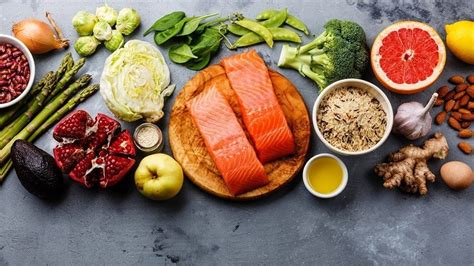Natural ways to boost testosterone for peak energy & muscle?

Testosterone, often hailed as the king of male hormones, plays a pivotal role far beyond just sex drive. It’s crucial for maintaining energy levels, building muscle mass, strengthening bones, and even influencing mood and cognitive function. As men age, testosterone levels naturally decline, but various lifestyle factors can accelerate this drop or keep levels suboptimal at any age. The good news? You can significantly influence your testosterone levels through natural, evidence-backed strategies.
Optimize Your Diet for Hormone Health
What you eat directly impacts your hormonal balance. A diet rich in nutrient-dense foods is fundamental for robust testosterone production.
- Healthy Fats: Cholesterol is a precursor to testosterone, so incorporating healthy fats from sources like avocados, nuts, seeds, olive oil, and fatty fish (salmon, mackerel) is vital.
- Protein: Adequate protein intake supports muscle growth and hormone production. Focus on lean meats, poultry, fish, eggs, and plant-based proteins.
- Micronutrients:
- Zinc: Essential for testosterone synthesis. Good sources include oysters, red meat, poultry, beans, nuts, and dairy.
- Vitamin D: More than just a vitamin, it acts as a steroid hormone in the body. Sun exposure is the best source, but fatty fish and fortified foods can help. Supplementation might be necessary, especially in winter months or for those with limited sun exposure.
- Magnesium: Plays a role in over 300 enzymatic reactions, including those involved in testosterone production. Found in leafy greens, nuts, seeds, and whole grains.
- Limit Sugar and Processed Foods: High sugar intake and highly processed foods can lead to insulin resistance and inflammation, both of which can negatively impact testosterone levels.

Embrace Strength Training and High-Intensity Interval Training (HIIT)
Exercise is a powerful natural testosterone booster. Not all exercise is created equal when it comes to hormonal impact.
- Strength Training: Lifting weights, especially compound movements like squats, deadlifts, bench presses, and rows, has been shown to acutely and chronically increase testosterone levels. Focus on heavy, compound lifts that engage multiple muscle groups. Aim for 3-4 sessions per week.
- High-Intensity Interval Training (HIIT): Short bursts of intense exercise followed by brief recovery periods can also significantly boost testosterone. Examples include sprinting, cycling, or rowing with alternating high-intensity and low-intensity phases.
- Avoid Overtraining: While exercise is crucial, excessive chronic cardio or overtraining can actually have the opposite effect, increasing cortisol (stress hormone) and potentially lowering testosterone. Listen to your body and incorporate adequate rest.

Prioritize Quality Sleep
Sleep is not merely a period of rest; it’s a critical time for hormone regulation and cellular repair. Testosterone production primarily occurs during sleep, particularly during the deep REM stages.
- Aim for 7-9 Hours: Most men need 7-9 hours of quality sleep per night. Consistent sleep deprivation can drastically lower testosterone levels.
- Improve Sleep Hygiene: Create a dark, quiet, and cool bedroom environment. Avoid screens an hour before bed, and stick to a consistent sleep schedule, even on weekends.

Manage Stress Effectively
Chronic stress is a silent killer of testosterone. When you’re stressed, your body produces cortisol. High levels of cortisol have an inverse relationship with testosterone – as one goes up, the other tends to go down. This is because both hormones share a common precursor, pregnenolone. When stress is high, the body prioritizes cortisol production.
Implement stress-reduction techniques into your daily routine:
- Meditation and mindfulness
- Yoga or deep breathing exercises
- Spending time in nature
- Engaging in hobbies or activities you enjoy
- Ensuring adequate social connection
Consider Lifestyle Adjustments
Beyond diet, exercise, and sleep, several other lifestyle factors can influence your testosterone levels:
- Maintain a Healthy Weight: Obesity, especially abdominal fat, is strongly linked to lower testosterone. Fat cells contain an enzyme called aromatase, which converts testosterone into estrogen, further reducing available testosterone.
- Limit Alcohol Consumption: Excessive alcohol intake can interfere with hormone production and liver function, impacting testosterone.
- Minimize Exposure to Endocrine Disruptors: Certain chemicals found in plastics (BPA, phthalates), pesticides, and personal care products can mimic hormones or interfere with their natural production and function. Choose glass containers, organic produce, and natural personal care items where possible.
- Get Sufficient Sunlight Exposure: Beyond Vitamin D, sunlight itself may play a role in testosterone regulation. Aim for safe, regular sun exposure.

The Holistic Approach to Boosting Testosterone
Naturally boosting your testosterone is not about a quick fix but rather a commitment to a holistic, healthy lifestyle. By consistently focusing on a nutrient-rich diet, effective exercise, sufficient sleep, stress management, and smart lifestyle choices, you can optimize your body’s natural testosterone production. This comprehensive approach will not only help you achieve peak energy and muscle development but also contribute significantly to your overall health, vitality, and well-being.










